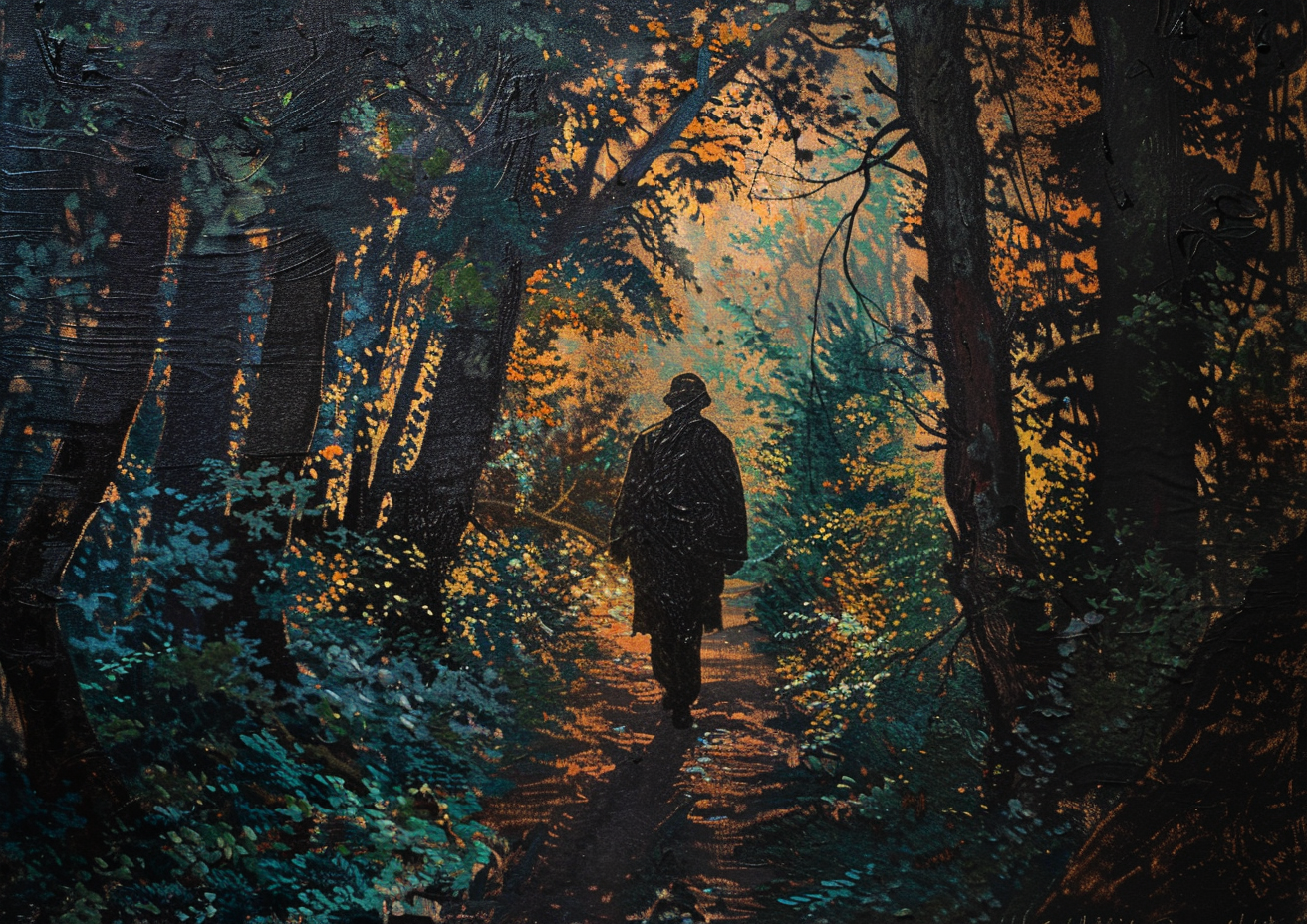
Might go for a walk
🚶 A stroll to the other side of the country · Build It Right · Price of movement · LPRs on hold · Much more!
Good afternoon, everyone.
My anti-AC crusade continues. One problem that obviously emerges in the absence of AC is moisture, which I’ve combatted with strategically placed DampRid buckets and bags around the house and a running dehumidifier in the basement.
I’m most concerned about the art on the walls, the books on the shelves, and the humidity in the bedroom, so I’ve concentrated my dehumidifying efforts there. It’s possible that by the end of all this, I’ll rediscover the value of AC and become its biggest adherent. But right now, I just can’t bring myself to turn down the dial.
With 190 miles of sidewalks proposed in the new transit plan, I thought we’d talk a bit about walking and how we’re all weak and boring now.
Onward.
In the fall of 1884, Charles Lummis—naturalist, classmate of Teddy Roosevelt at Harvard, and accomplished writer—decided to walk all the way from Cincinnati to Los Angeles to take a job at the brand new Los Angeles Times. There's a book about it, A Tramp Across the Continent, that's a welcome addition to any home library colored as it is by anecdotes and good humor.
One aspect that really sticks out is Lummis' depictions of violence. At one point, he runs into two "burly, greasy fellows" that Lummis, after a quick up-down look, takes for criminals. Bigger than Lummis, they clumsily lunge for his belongings which affords Lummis the chance to whip out his big bowie knife:
Then I whipped out the knife and started for the amateur robbers, with a murderous face, but chuckling inwardly—a chuckle which broke into open laughter as they fled incontinently down the track, their tatters streaming behind upon the wind.
Turns out Lummis had the right read on 'em. This and other encounters express irreverent glee at seeing his would-be assailants go down in the dirt. He talks good-naturedly about kicking a guy a few times after he pulls a pistol on him, and again, laughing as he runs away. It's reminiscent of the brutal violence in Don Quixote where the deranged knight getting his head cleaved in by saner fellows plays for laughs. In this telling, Lummis gets the laughs for himself.
People still do these kinds of jaunts, albeit in less good humor than Lummis or Forest Gump and more as a means to resolve trauma, support a cause, or in the dastardly pursuit of health towards which Lummis vents:
I was after neither time nor money, but life—not life in the pathetic meaning of the poor health-seeker, for I was perfectly well and a trained athlete; but life in the truer, broader, sweeter, sense, the exhilarant joy of living outside the sorry fences of society, living with a perfect body and a wakened mind, a life where brain and brawn and leg and lung all rejoice and grow together.
Lummis was a man with a large, insatiable appetite for adventure and action. Once he arrived in Los Angeles, Lummis started work at the Times the next day. When talking about why he undertook the walk, he says that it was for "pure pleasure."
Where is that kind of hunger, that kind of good-natured, fool-hardy recklessness in today's world? Lafayette Lee addresses that question in a recent substack recounting grueling stories of frontier life from family diaries passed down through the generations:
Perhaps this country of ours is hungrier than we realize. Notwithstanding all the gratification and ease, do our souls not cry out? If there is something lacking in this strangely savage Pleasure Island of ours, it seems to have something to do with our spirit. Though able-bodied and flanked on all sides by mollycoddling machines, we also grind and strain against the world.
Yes, the "mollycoddling machines" include the accouterment of air conditioning, Netflix, etc. But equally effective as a sedative are the cultural pressures that make an act such as Lummis' seem foolish or a waste of time unless justified by some external impetus: raising money for charity or dealing with repressed trauma. He'd likely be discouraged to no end for simply wanting to walk across the country, warned of the negative effects on his resume, and made an outcast in polite society for shunning the rules and displaying a disproportionate degree of vitality and bravado.
Lummis, of course, did all these things, but happily married that impulse back into society when he joined the LA Times. This was no misanthrope grappling with himself—Lummis had a family at the time—but a genuinely buoyant man of high spirit who wanted to see his country, discover its secrets, and enjoy the pleasures of the open air all the while.
Much is made of material luxuries that keep this kind of impulse in check but consider the cultural pressures that make such an act uncouth today. DAVIS HUNT
⧖⧗⧖ SHOW YOUR SUPPORT ⧗⧖⧗
If you want to support The Pamphleteer, a recurring donation is the best way. We have a $10/month Grub Street tier and a $50/month Bard tier. Membership gets you access to our comments section and free access to upcoming events.

🚧 Construction Work Ahead Sandra Sepulveda hasn’t been shy about wanting to shake things up during her second term in council, so her introduction of the "Build It Right" bill comes as no surprise.
The legislation, which promises to “uphold workers’ rights and ensure equal opportunities in the construction industry,” has been in the works for almost a year. If passed, Metro would dedicate the manpower needed to follow up on worker complaints and audit public-private contract agreements. Though the bill already has considerable support—Charley Rodriguez of the International Union of Painters and Applied Trades helped draft the legislation, and 25 council members have already signed on as co-sponsors—it would cost a pretty penny: the board would include both an executive director and investigator position, whose combined salaries would set Metro back about $300,000.
“In a year where we didn't propose any funding for it, we want to make sure that it doesn't increase cost dramatically,” Mayor O’Connell said last week. “But on principle, we certainly support the idea of not having wage theft or unsafe workplaces, particularly where there is Metro involvement.” Though the cost wasn’t included in the mayor’s budget, Metro’s Budget and Finance Chair, Delishia Porterfield, seems ready to move some money around.
To drum up support for the bill, Sepulveda will be holding a press conference before tonight’s council meeting at 5:30 p.m. in the Historic Metro Courthouse. Also on hand will be union members and a relative of the late Denis Ché, who passed away after a roofing accident last year.
🚌 The Real Price of Movement An external audit of Mayor O’Connell’s $3.1 billion transit plan reveals the initiative’s actual cost — a cool $6.9 billion over its lifetime. Despite the increased price tag, the report concludes that the TIP is financially feasible, generating $3.26 billion in revenue from the sales tax surcharge, $2 billion from bonds, and the remaining $1.52 billion from federal and state grants. Following up on Megan’s piece from last week, we asked the mayor’s office when the sales tax surcharge would sunset. O’Connell spokesperson Alex Apple replied, "Repayment of debt will happen over a roughly 30-year period as the sales tax surcharge would be used to fund the program through the repayment of the bonds the city takes out." Presumably, after the bond debt is repaid, the sales tax surcharge would phase out.
Relatedly, Ron Shultis put together a fantastic breakdown of the transit plan that I suggest everyone read. In particular, Shultis underscores the $34 million set aside for the purchase of 26 acres of land around new transit centers to develop “a variety of transit-connected community leads, such as thoughtfully designed affordable housing.” “So now a government that not too long ago had problems delivering basic services like trash pickup is going to get into the real estate development business,” Shultis retorts. DAVIS HUNT
📹 LPRs on Hold According to Mayor O’Connell, LPR installation may be on the back burner for quite some time. “I suspect we will probably look at fine-tuning the policy that went into place that would set up potentially permanent LPR installation over the course of the next few months,” he said during last week’s roundtable. “Then we will see how the Metro Council responds to that, and then we'll come back around and look at what it would look like to fund a full implementation based on a new policy.”
MNPD’s Public Affairs Director, Don Aaron, says the department is patiently awaiting the program’s rollout. Though the council passed a resolution to permanently install LPRs last August, it seems the body is still hesitant to finalize a deal. As you’ll recall, the mayor’s office held a handful of “community conversations” concerning LPRs, which you can read about here.
DEVELOPMENT


✹ HOW TO PARTY

An enlivening essay from Elsa Maxwell—whom George Benard Shaw, among others, celebrated as "the eighth wonder of the world"—on how to throw a proper party. The Iowa native invented the concept of the scavenger hunt and was renowned throughout the Western world for her eclectic gatherings. She penned a column in 1930 with some advice for would-be party throwers:
Guests should be selected for their human attributes. If celebrities, they should be human ones, and never, under any consideration, should one dull person be allowed to darken your doors, no well-known bores, nor tiresome snobs.
Just a sample. A ton of gems in there. Worth a read.
Source: The Secret To Hosting A Party For The Ages
Vogue, August 1930, Read Online

THINGS TO DO
View our calendar for the week here and our weekly film rundown here.
📅 Visit our On The Radar list to find upcoming events around Nashville.
🎧 On Spotify: Pamphleteer's Picks, a playlist of our favorite bands in town this week.
👨🏻🌾 Check out our Nashville farmer's market guide and yearly festival guide.
TONIGHT
🎸 Dark Star Orchestra @ Brooklyn Bowl, 7:30p, $46+, Info
🎸 45 RPM @ Station Inn, 8p, $20, Info
🎸 JP Ruggieri + Friends @ Vinyl Tap, 6p, No Cover, Info
🎺 Todd Day Wait @ The Underdog, 11:00p, Free, Info
+ Honky Tonk Tuesday afterparty, down the street
🎸 Honky Tonk Tuesday @ American Legion Post 82, 8p, Free, Info
+ two-step lessons @ 7p, The Cowpokes @ 8p
